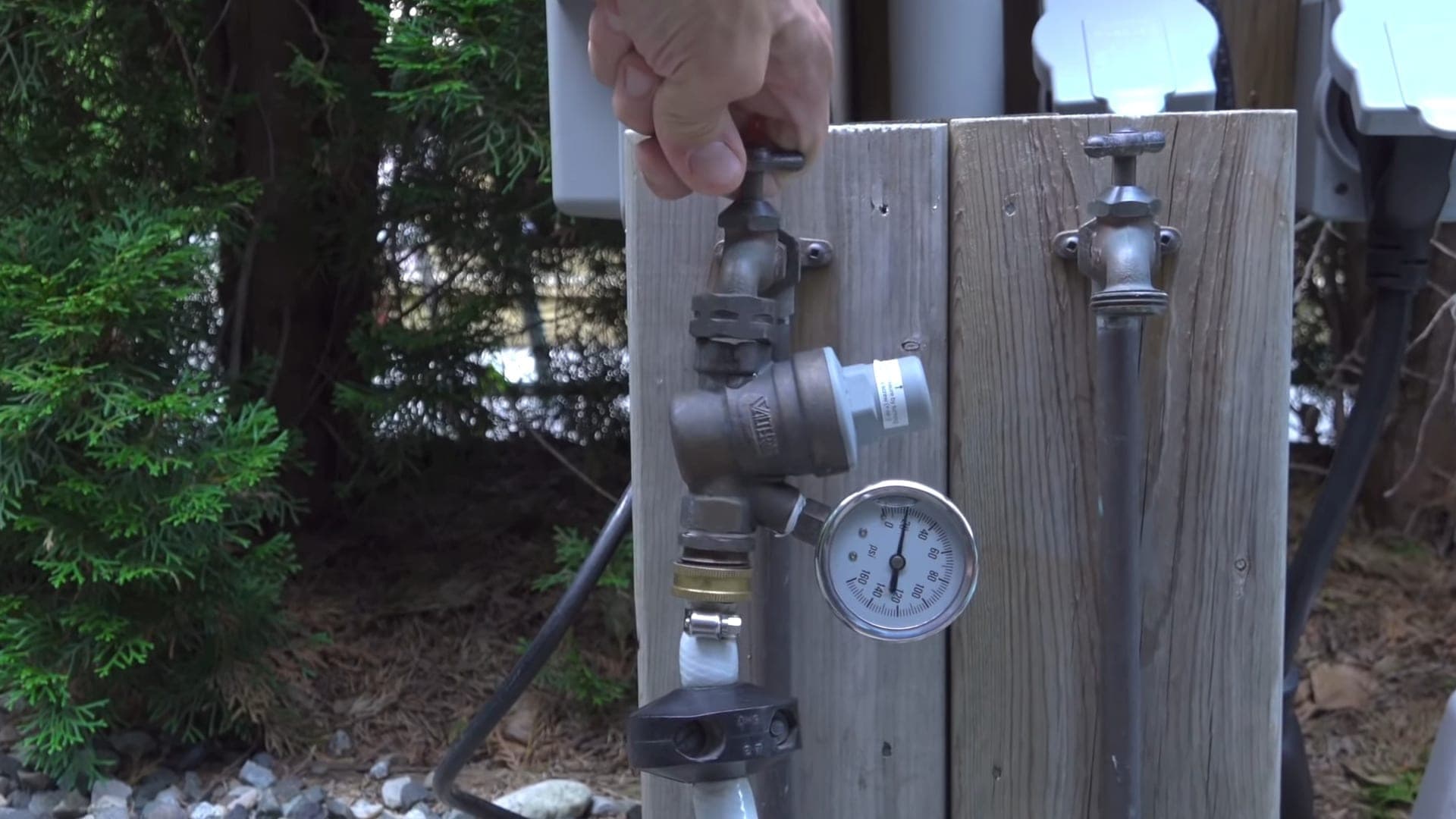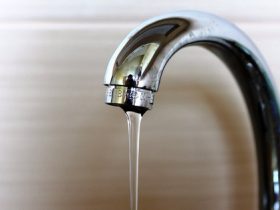Confirmed Tactics for Resolving Low Water Pressure in Your Home
Confirmed Tactics for Resolving Low Water Pressure in Your Home
Blog Article
The publisher is making a few good pointers regarding 10 Reasons for Low Water Pressure in Your House as a whole in this article following next.

Low water pressure in your home can be an irritating trouble, impacting every little thing from bathing to washing recipes. If you're experiencing weak water flow, there are numerous feasible causes and remedies to check out. In this guide, we'll talk about typical reasons for low water pressure and practical actions to resolve the concern effectively.
Introduction to Low Water Stress
Low tide pressure happens when the flow of water from your faucets, showers, and various other components is weak than normal. This can make daily jobs more tough and less reliable. Comprehending the causes of low tide stress is important to discovering the ideal option.
Typical Root Causes Of Low Tide Pressure
Faulty Pressure Regulatory Authorities
Stress regulatory authorities are in charge of keeping constant water pressure in your home. If they malfunction, it can cause low tide pressure or uneven circulation throughout your home.
Municipal Water Supply Issues
Occasionally, the issue exists outside your home. Local water concerns, such as main line leaks or maintenance work, can momentarily minimize water pressure in your area.
Pipeline Obstructions
Over time, pipes can become clogged with mineral deposits, debris, or debris, restricting the circulation of water. This is a typical concern in older homes with galvanized steel pipelines.
Deterioration
Corrosion within pipes can lead to leaks and lowered water stress. Corrosion build-up can constrict water circulation, particularly in maturing plumbing systems.
Just How to Identify Low Water Stress
Inspecting Pipes
Check noticeable pipes for indicators of leakages, corrosion, or obstructions. Pay attention to any unusual noises, such as banging or rattling pipelines, which can suggest problems within the plumbing system.
Consulting with a Plumber
If you're incapable to determine the reason for low water pressure, take into consideration employing a professional plumber to perform a detailed assessment. They can identify underlying issues and recommend ideal options.
Checking Taps and Fixtures
Beginning by testing the water pressure at various taps and components throughout your home. If the concern is isolated to specific locations, it may indicate local troubles.
DIY Solutions to Fix Low Tide Stress
Flushing Hot Water Heater
Sediment build-up in the hot water heater can limit flow and decrease efficiency. Purging the storage tank regularly assists remove debris and preserve optimal performance.
Checking Pressure Regulatory Authority
Ensure that the pressure regulator is working correctly. Adjusting or replacing the regulator can help bring back proper water pressure throughout your home.
Cleaning Aerators and Showerheads
Natural resources can gather in aerators and showerheads, reducing water circulation. Eliminate and cleanse these elements routinely to improve water pressure.
Cleaning Clogs in Piping
For small clogs, attempt utilizing a plumbing serpent or chemical drain cleaner to clear obstructions in pipes. Beware when making use of chemicals and follow safety and security guidelines.
When to Call an Expert Plumber
If do it yourself efforts stop working to fix the concern or if you believe considerable plumbing troubles, it's ideal to look for support from an accredited plumber. They have the proficiency and tools to attend to complicated concerns securely and properly.
Safety Nets to Maintain Water Stress
Setting Up a Pressure Booster
Think about setting up a stress booster pump to enhance water pressure in locations with consistently low flow. This can be especially beneficial for multi-story homes or residential or commercial properties with high-demand fixtures.
Monitoring Water Usage
Be mindful of water usage routines and stay clear of ill-using the plumbing system. Straightforward modifications, such as shocking showers and washing loads, can aid maintain appropriate water stress.
Routine Upkeep
Schedule routine upkeep for your plumbing system to stop issues such as rust, leaks, and blockages. Resolving small problems early can assist stay clear of more significant repair work later on.
Final thought
Managing low water stress can be frustrating, yet identifying the underlying causes and executing ideal options can bring back optimal flow throughout your home. Whether it's cleaning aerators, evaluating pipelines, or consulting with a plumber, taking positive actions can make certain a stable supply of water for your everyday requirements.
HOW TO FIX LOW WATER PRESSURE IN YOUR HOUSE
When your plumbing system functions properly, you likely never think about the water pressure coming from your faucets, shower heads, or other water fixtures. If you experience low water pressure in your house, though, it can quickly cause problems for cooking, cleaning, bathing, and laundry. Learning how to fix low water pressure in your house can help you avoid frustrating situations and worsening plumbing issues.
When investigating why your home has low water pressure, call the plumbing professionals at Hutchinson to inspect your system, identify the problem, and perform necessary repairs. Our highly-trained plumbing system experts utilize the best tools and techniques available to resolve issues with your home’s plumbing system. Call today to schedule a service with our experts and resolve the low water pressure in your home.
Common Causes of Low Water Pressure
While learning about how to fix low water pressure in your house, it’s essential to understand the various causes of this issue. From plumbing system failures to issues with your water fixtures, there are many reasons for low water pressure in a home. The most common causes of low water pressure include:
Pipe corrosion: If you live in an old house, your pipes could be much older than you realize. Over time, most pipes corrode, especially those made from galvanized steel. Corrosion creates small holes in your pipes that allow water to leak as it travels to your fixtures, leading to low water pressure. Hard water: Hard water forms when water retains a certain concentration of mineral and sediment buildup. Hard water can exacerbate corrosion and reduce water pressure. Hard water remains one of the main culprits of clogged pipes. Clogged pipes: When a pipe blockage clogs your system, it restricts water flow. That’s why clogged pipes are a leading cause of low water pressure. Faulty fixtures: Components within individual water fixtures can experience isolated clogging and rusting that cause low water pressure. If you notice only low shower pressure or limited faucet flow, inspect your system for faulty fixtures displaying rusting, clogging, and other damage. Water line leaks: Your water supply usually comes from a community source connected to your home through a water line. Any leaking in this water line will reduce water pressure before it enters your home. If you share a water line with neighbors, they might also notice low water pressure due to this problem. Broken pressure regulator: The pressure regulator ensures the water flowing throughout your home remains at a psi of about 50. Damage or breakdown of this crucial component will reduce water pressure throughout your property. Closed valve: The water valve supplying your home must be fully open to enable proper water pressure. A partially closed valve will yield low water pressure and cause issues. 5 Ways to Fix Low Water Pressure
Check for Leaks
Depending on their severity, leaks are usually easy to identify as the cause of your low water pressure. Whether your basement floods overnight or you notice mold growth on surfaces near your pipes, leaks usually present noticeable symptoms. In most cases, you’ll need to call professionals to replace sections of damaged piping or seal water line leaks.
Clear Clogged Pipes and Drains
Clogs can occur in any part of your system at any time. In most cases, it’s difficult to resolve clogged pipes and drains without professional equipment and experience.
Hutchinson experts can perform a comprehensive plumbing system inspection to identify the clog’s source and remove obstructions from your pipes. With the help of advanced equipment, we can restore your home’s normal water flow and pressure.
Replace the Pressure Regulator
After identifying a faulty pressure regulator as the cause of your low water pressure, there’s nothing to do but replace the mechanism. Homeowners should never conduct their own replacement.
Attempting to replace a crucial component like your pressure regulator that attaches to your overall plumbing framework could cause unnecessary damage and worsen the situation. Instead, rely on professionals to replace your pressure regulator properly.
Repair or Replace Broken Faucets and Fixtures
If you notice water pressure issues in an individual faucet or fixture, you can solve the problem quickly. Depending on the type and location of the fixture, you can likely replace it yourself.
For homes with custom fixtures, you might need to special order new parts. In these cases, opting for professional replacements helps you avoid any mishaps that could leave your water feature dysfunctional for longer.
Install a Pressure Booster
Water pressure problems impacting your neighborhood or community at large might require more overarching solutions. If your neighbors experience low water pressure as well, you might need to integrate a pressure booster into your water supply line.
Pressure boosters upgrade the water pressure starting at the source. These mechanisms can provide water pressure benefits to any homes on the same supply line. Call Hutchinson today to install a pressure booster on your water supply line.
Call Hutchinson to Fix All Your Plumbing Issues
Low water pressure is just one of many plumbing problems that reduce home comfort and cause system issues. The top-rated professionals at Hutchinson offer comprehensive plumbing services, including system inspections, maintenance, and repairs.
https://www.hutchbiz.com/blog/2024/01/15/how-to-fix-low-water-pressure-in-house/

I'm just very interested in Low Water Pressure in the House? and I am hoping you liked my page. Do you know about somebody who is excited by 9 Reasons for Low Water Pressure in Your House? Why not promote it. Thanks for your time invested reading it.
View Report this page